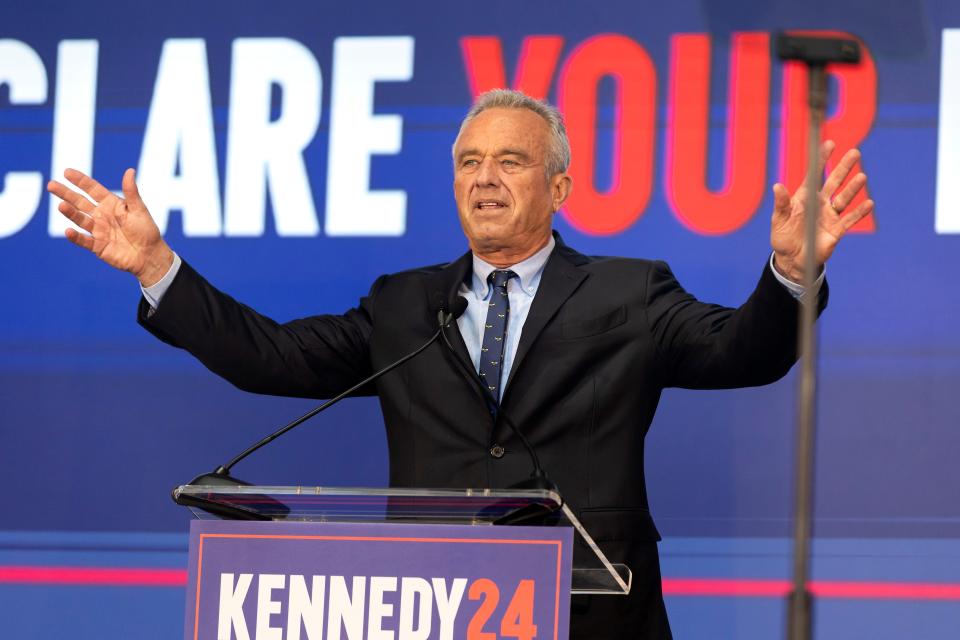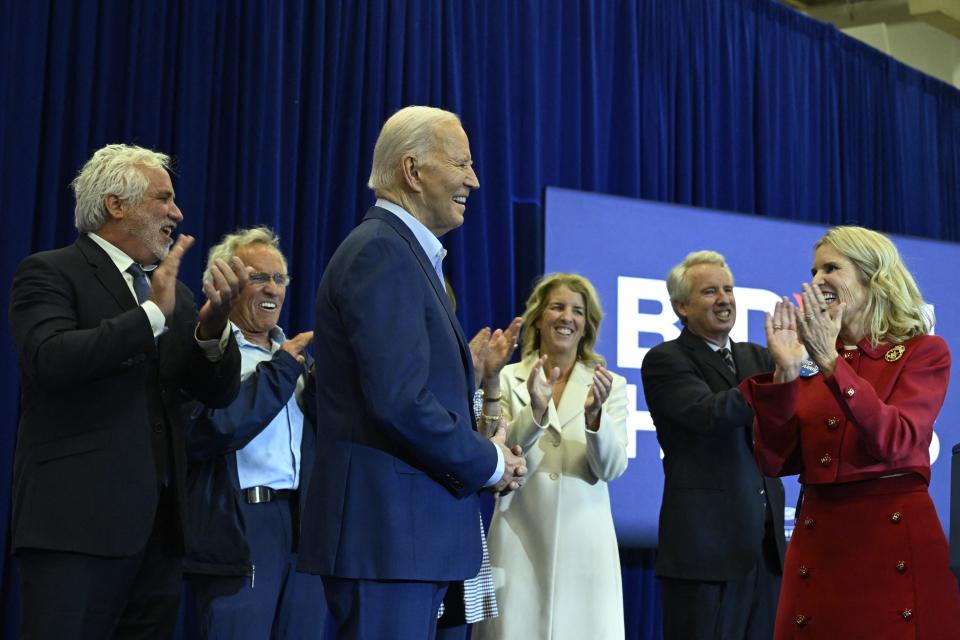Robert F. Kennedy Jr. is running for president. How can it affect Texas down-ballot races?
One of the parlor games heading to the 2024 presidential election is, who has more to lose — Joe Biden or Donald Trump — if Robert F. Kennedy Jr. gets a place on the Texas ballot?
The answer? Sen. Ted Cruz.
Admittedly, that's a bit flippant. But recent polling from both the Texas Politics Project at the University of Texas and the Texas Hispanic Policy Council show that the point spread between Biden and Trump is largely unchanged when third-party candidates are or are not in the mix. But if Kennedy is on the ballot, the bulk of his voters gravitate toward U.S. Rep. Collin Allred, the Dallas Democrat challenging Cruz in the U.S. Senate race, the Hispanic Policy Council poll shows.
Both polls, which were conducted last month, show that Trump is running well ahead of Biden in Texas, which for more than a generation has been the nation's largest Republican state in presidential elections. The UT poll, released Wednesday, puts the former president 9 percentage points ahead of the incumbent. The one by the Hispanic Policy Council shows Trump with a 12-point advantage.

But the matchup between Cruz, who is seeking a third Senate term, and Allred offers a less clear picture. And that's where the RFK Jr. factor comes into play. Cruz, who has been a national figure with nearly universal name identification since entering the Senate in 2013, has a commanding 13-point lead over Allred, who has been in Congress since 2019 and is making his first bid for statewide office, according to the UT poll.
But the Hispanic Policy Council poll, which shows Trump with a comfortable cushion at the top of the ticket, sees the Senate race as a squeaker by comparison. Just five points separate the candidates.
More: A look at Joe Biden, Donald Trump and Robert F. Kennedy's top campaign donors
Kennedy's share for both polls in the presidential race is in the high single digits — nine points from the Hispanic Policy Council and eight points from the Texas Politics Project.
Respondents who said they backed Kennedy for president in the Hispanic Policy Council poll were asked how they planned to vote in the Senate race. Allred drew 46%, but fewer than 3 in 10 said Cruz. The rest of RFK Jr.'s votes were up for grabs.
Allred's share of the Kennedy vote is not terribly surprising, given that the independent candidate is a member of the nation's most prominent family of Democrats. His uncle, the late John F. Kennedy, was president. His father and namesake was a senator from New York and was assassinated while running for president. His uncle Ted Kennedy served as a senator from Massachusetts from 1963 until his death in 2009. One of RFK Jr.'s brothers served in Congress, and so did a couple of his cousins.

But most of the surviving members of the extended Kennedy clan have made a public showing of their nonsupport of this particular member of the family, who had originally planned to challenge Biden in the Democratic primaries before deciding to run with no party affiliation.
Kennedy's name is still far from a lock to be on the ballot in all 50 states. He has qualified in just four states — including California, the largest — and appears close to qualifying in six others. He has until May 13 to submit the required 113,151 signatures of registered voters who did not vote in either 2024 presidential primary to the Texas secretary of state's office to secure a place on the Texas ballot for the Nov. 5 election.
So far, RFK Jr. is seeking to appeal to voters, including first-timers, who are dissatisfied with both Biden and Trump. Kennedy's candidacy does not fit neatly into the traditional two-party camps of progressives and conservatives. He's been criticized for embracing conspiracy theories that cast doubt on the official accounts of the Sept. 11, 2001, terrorist attack in New York, and of the Jan. 6, 2021, U.S. Capitol riot. But he's also an active environmentalist.
More: Donald Trump is now blasting RFK Jr. for taking support from him
Assuming he does qualify for the Texas ballot, he'll start off with the best name recognition for a third-party presidential candidate since Dallas tycoon Ross Perot ran in the 1990s. Name ID is a double-edged sword in politics. But a familiar name can attract low-information and low-propensity voters who might turn out because they like the candidate or because they want to see that candidate go down in flames.
The questions become, do those voters say "one and done" as they cast their vote for president and leave the polling station? Or do they continue down the ballot and exert their influence in as-yet unseen ways?
This article originally appeared on Austin American-Statesman: RFK Jr. factor may affect Texas down-ballot races in November election